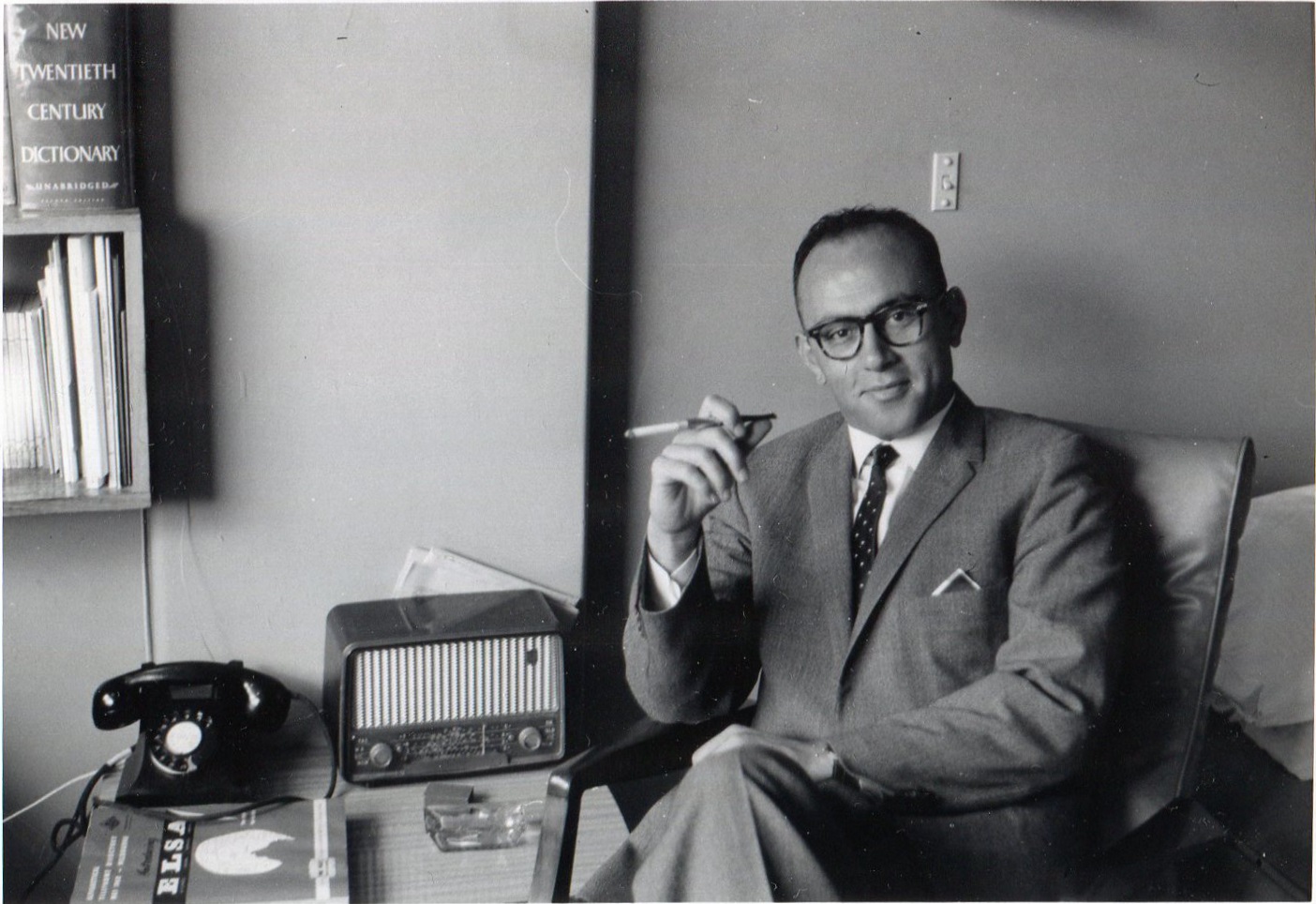
International House: The first years
Nicos Kanaris
Nicos Kanaris (1929-1961), a science student from Cyprus, was one of the first residents of International House. In 1960, he was appointed Tutor in Biology and Botany, and in 1961 he was made an Honorary Life Member of the Student Club. This is an edited version of an article he wrote for Satadal in 1961.
As I am the last foundation member of International House, it may be considered appropriate for me to give this short account of some features of the early life of the House.
Early in 1957, 42 students from different countries with diverse customs, educational backgrounds and ages entered International House as its foundation members. Perhaps I am biased because of the novelty of the experience, but I have never since witnessed such a great diversity in such a small community. We were not all there simply to fulfil the responsibilities and tasks of the House, like the furtherance of international understanding, for such things as the the good accommodation of the House were attractive and tempting reasons to enter residence. For the selection of such a diverse group of foundation members, the first warden, Mr Brian Jones, may be wholeheartedly congratulated. He very bravely proceeded to create an identity for this diverse population, a task not very easy to accomplish
The Students’ Club was founded at an early stage, its constitution draughted [sic] and the first committee formed the necessary links between the students and the administration. There is no need for me to examine here the aims and existing achievements of the club, but it can be safely stated that is has played, and will continue to play, a most vital part in the development of House. The firmer its foundation, the greater will be its contribution to the House.
…
At the House friendships are established and consolidated under conditions of active living, whether in mental activities (discussion and spiritual struggles) or in physical activities (indoor and outdoor sports). The residents of the House have established friendships which I am sure will be remembered for a long time to come.
Nicos Kanaris
At the House friendships are established and consolidated under conditions of active living, whether in mental activities (discussion and spiritual struggles) or in physical activities (indoor and outdoor sports). The residents of the House have established friendships which I am sure will be remembered for a long time to come. This was not done by mutual tolerance only (which was itself obvious at all times), but by active participation in communal activities. The establishment of the Art Exhibition which is still an annual event, the Sunday film evenings, and recorded music concerts all continue. In spite of the small numbers, plays were staged with help from outside friends. A short-lived discussion group, the “Waste Paper Society”, was established at a later date, and this has since been replaced by a formal discussion and debating group. On occasions a national dinner was cooked by a student for the whole House – sometimes with disastrous results, but nevertheless accepted with understanding by all those who shared it. I will not attempt to list the many interesting personalities who visited the House and who asked and answered questions. Many of us accepted hospitality in the country where we gave talks on either the House or our homelands; the people of Victoria should be thanked for their great hospitality. The picture cannot be completed without reference to the pleasant smells and tastes of various suppers cooked in the small student-kitchen, the innumerable cups of coffee and often more exhilarating drinks, over which discussions went on far into the night.
…
After more than four years of residence in International House, there are so many pleasant facts and happy memories one could write about and so many persons whose philosophies of life have been like guiding stars.
To a great number of us, the University has given us the means to earn our living, but International House has given us a broader education — the good living.